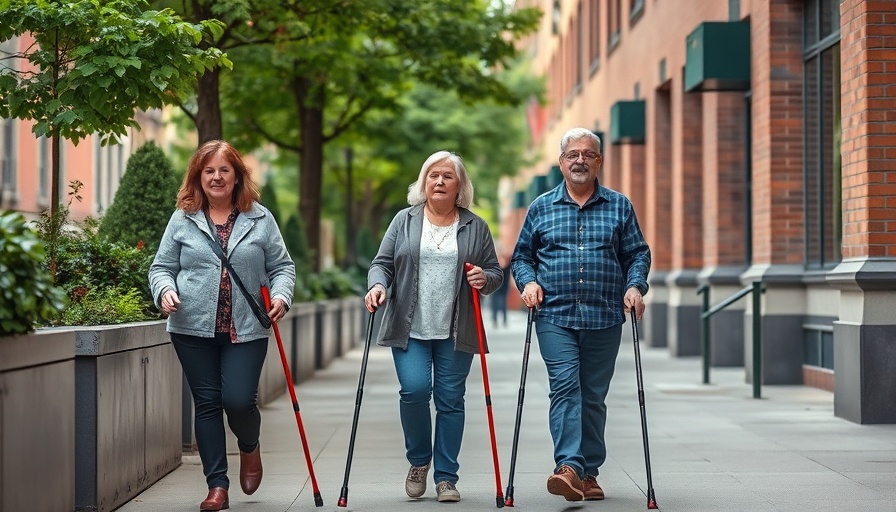
Immersive Learning: How Hands-on Courses Enhance Instruction for the Visually Impaired
The University of Nebraska–Lincoln is pioneering innovative courses aimed at equipping future instructors with essential skills to aid blind and visually impaired individuals. SPED 854 and SPED 864 are two immersive courses that blend theory with practical experience, allowing students to step into the shoes of those they will one day instruct. This approach is not only about teaching cane skills but also about fostering empathy and understanding of diverse challenges faced by visually impaired individuals.
Creating a Thorough Understanding of Mobility
Participants in these courses are not limited to classroom instruction; they are taken through a comprehensive training process that begins in controlled indoor environments and gradually expands to more complex settings in the community. Under the guidance of seasoned certified orientation and mobility specialists, graduate students learn to navigate various settings—from residential areas to urban spaces—gaining insights into real-life scenarios that visually impaired individuals encounter every day.
Multi-faceted Learning Environment
One of the standout features of this program is its multi-sensory approach. According to course coordinator Sara Reuss, instruction includes auditory orientation to help trainees learn how to discern their surroundings using sound, in addition to incorporating low-vision simulations. This comprehensive training technique ensures these future instructors can provide holistic assistance tailored to the unique needs of each individual they will serve.
Importance of Flexibility and Creativity
Reuss emphasizes that effective orientation and mobility instruction goes beyond simply teaching a route from point A to B. Trainees learn to identify potential challenges—such as construction or other obstacles—and the problem-solving skills necessary to navigate around these issues. This emphasis on adaptability prepares instructors to arm their future students with the necessary tools to deal with unpredictable challenges, empowering them to move confidently through their environments.
A Broader Impact on Community
The impact of these courses extends far beyond the university and into the larger community. By training skilled instructors, the program aims to enhance mobility independence among visually impaired individuals, ultimately fostering inclusion and accessibility in all public spaces. As participants become advocates for those they instruct, the ripple effect of their education supports the broader movement towards society's acceptance and accommodation of people with disabilities.
Building Empathy and Engagement
Understanding the challenges faced by the blind and visually impaired is crucial for effective teaching. This immersive coursework not only arms students with practical skills but fosters a compassionate approach to education. By emphasizing personal experience, instructors walk away better equipped to engage their students actively and remain sensitive to their needs.
Transforming Social Perspectives Around Visual Impairment
In today’s increasingly inclusive society, programs such as those offered at the University of Nebraska-Lincoln play an essential role in reshaping perceptions about visual impairment. As future leaders in orientation and mobility education, graduates of these courses will propel the dialogue surrounding accessibility and empower a generation to embrace inclusivity in all aspects of community life.
Courses like SPED 854 and SPED 864 underscore the commitment to fostering a society equipped to navigate diverse challenges. The hands-on experience enhances learning and helps instructors instill independence in their students, ensuring mobility and confidence for everyone.
 Add Row
Add Row  Add
Add 




Write A Comment